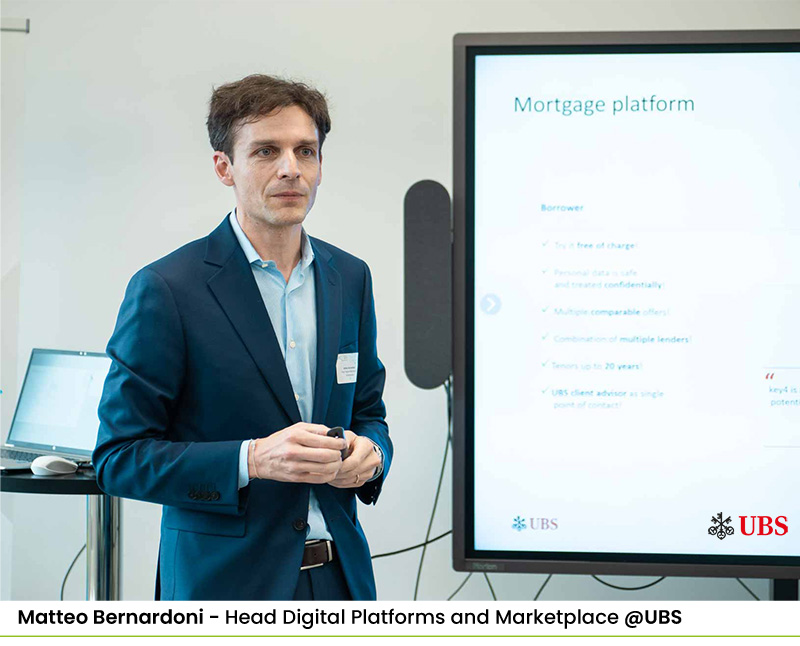Real estate: 10 big trends for 2023
Inflation, interest rates, war: real estate profitability expectations have dropped to low levels in 2023, Pwc suggests in a recent report. But there’s more to the story: the sector is changing at a fast pace, with plenty of opportunities for those who seek them. Technology may be the industry’s biggest hope: from sales to contracts, mortgages to renting, the so-called “digital twins” to a more efficient energy management approach, right on through investments and proptech, the future is knocking at the door, bringing with it new business perspectives and fresh opportunities.
These topics were discussed during “Banking for home and living: digitalization, platforms and ecosystems”, a public panel part of a series of community events held weekly at Dagorà’s headquarters in Manno (Lugano). With expert guest speakers from primary companies, these meetings offer attendees a chance to connect with potential business partners and stay abreast the latest trends at the crossroads of lifestyle and tech.
Let’s review some of the main trends in today’s real estate industry.
1) Inflation& recession: “Inflation will affect every aspect of the real estate sector” Pwc reasons. According to the consulting firm, 2022 saw a surge in material, building and energy costs. And that’s not all. “There is a widespread belief that a recession will lead to occupancies and rents falling, even in previously robust sectors”. Data suggests that residential real estate represents a more robust market than commercial real estate. Why? Because it’s considered a more stable income source for property owners.
2) Interest rates: After a decade of plentiful liquidity in the real estate capital market, galloping inflation finally forced central banks to raise rates. We’re entering a new era, although we’re nowhere near the obscure outlook seen in the Big Crisis of 2008.

3) ESG compliance: The European Union has placed significant emphasis on the fight against global warming. In the acronym, the capital E stands for environmental, meaning enhanced energy efficiency standards and more stringent requirements for constructions. The S stands for social, meaning affordable housing that is carefully integrated into existing neighborhoods and aimed at upgrading residents’ quality of life and positively impacting the community.
4) Proptech: is the joining of real estate, technology and platform economy. Typically, proptech improves efficiency and overlaps with fintech, construction technology (contech) and others. According to the PropTech Global Trends 2022 issued by Extended Monaco, the program in charge of the digital transformation of the Monaco Principality, as of March 2022 there were 2,209 companies operating in proptech around the world, comprising 67 countries, 4,463 investors and 20,41 billions raised. Proptech is relevant not only in the traditionally high-value markets of New York, London and Paris, but also in smaller markets throughout the world. One example is Citypop, a Swiss company based in Lugano, one of the country’s financial hubs. “Thanks to the digitalisation and to new partnership models, the real estate sector is evolving towards ecosystems models addressing holistically the users’ needs”, Matteo Bernardoni, head of digital marketplace and platforms at UBS says. “Coopetition is therefore the key to create seamless client experiences and provide to the users the right products at the right time and in the right place”.

